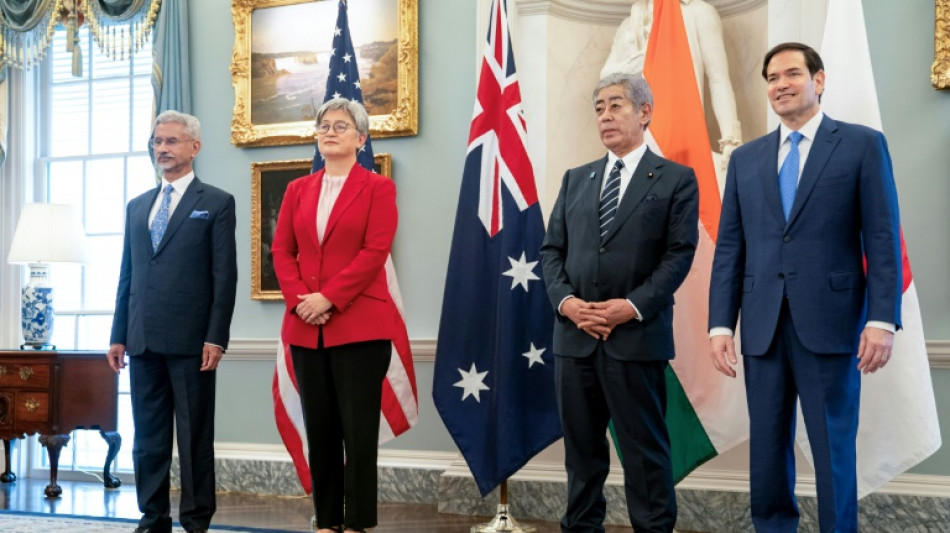
-
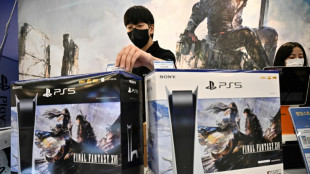 PlayStation prices rise as US tariffs bite
PlayStation prices rise as US tariffs bite
-
Games publisher kepler on cloud nine after smash hits

-
 Thirteen arrested over murders of Mexico City officials
Thirteen arrested over murders of Mexico City officials
-
Seville storms past Lyles for Lausanne 100m win
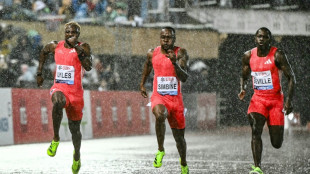
-
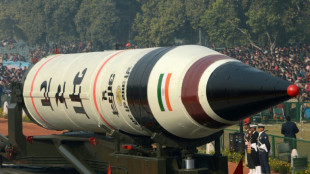 India test-fires nuclear-capable ballistic missile
India test-fires nuclear-capable ballistic missile
-
Google unveils latest Pixel phones packed with AI
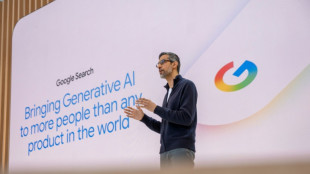
-
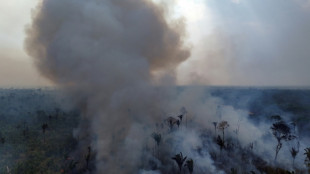 Brazil records 65 percent drop in Amazon area burned by fire
Brazil records 65 percent drop in Amazon area burned by fire
-
Threat from massive western Canada wildfire eases
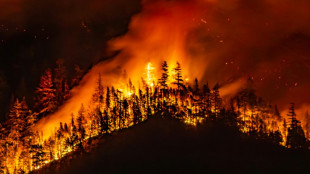
-
 England women's rugby coach Mitchell says World Cup favourites' tag 'irrelevant'
England women's rugby coach Mitchell says World Cup favourites' tag 'irrelevant'
-
US ramps up attack on international court over Israel

-
 Palace transfer targets Eze and Guehi to start in European tie
Palace transfer targets Eze and Guehi to start in European tie
-
North Carolina coasts prepare for flooding as Erin churns offshore

-
 India test-fires ballistic missile ahead of US tariff hike
India test-fires ballistic missile ahead of US tariff hike
-
Antarctic climate shifts threaten 'catastrophic' impacts globally

-
 Tall ships sail into Amsterdam for giant maritime festival
Tall ships sail into Amsterdam for giant maritime festival
-
Trump raises pressure on central bank, calls for Fed governor to resign

-
 Woods to head PGA Tour committee to overhaul golf
Woods to head PGA Tour committee to overhaul golf
-
Google packs new Pixel phones with AI

-
 How Europe tried to speak Trump
How Europe tried to speak Trump
-
Stock markets diverge awaiting Fed signals as tech sell-off deepens

-
 Ombudsman gives Gosden another International, Derby hero Lambourn loses
Ombudsman gives Gosden another International, Derby hero Lambourn loses
-
Eurovision returns to Vienna, 11 years after Conchita Wurst triumph

-
 England expects at Women's Rugby World Cup as hosts name strong side for opener
England expects at Women's Rugby World Cup as hosts name strong side for opener
-
Marseille's Rabiot, Rowe up for sale after 'extremely violent' bust-up: club president

-
 Shearer accuses Isak of pouring 'flames on fire' of Newcastle row
Shearer accuses Isak of pouring 'flames on fire' of Newcastle row
-
French champagne harvest begins with 'promising' outlook

-
 England unchanged for Women's Rugby World Cup opener against the USA
England unchanged for Women's Rugby World Cup opener against the USA
-
Stock markets diverge as traders eye US rate signals
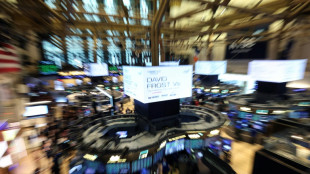
-
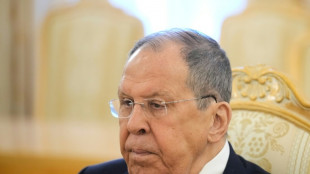 Russia says must be part of Ukraine security guarantees talks
Russia says must be part of Ukraine security guarantees talks
-
Historic Swedish church arrives at new home after two-day journey

-
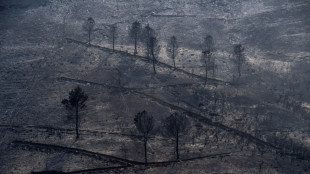 Winds complicate wildfire battle in Spain
Winds complicate wildfire battle in Spain
-
Nestle unveils method to boost cocoa yields as climate change hits

-
 UK set for more legal challenges over migrant hotels
UK set for more legal challenges over migrant hotels
-
Russia says discussing Ukraine security guarantees without Moscow 'road to nowhere'
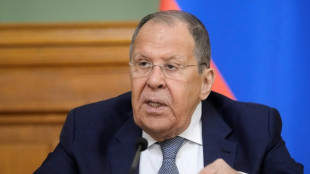
-
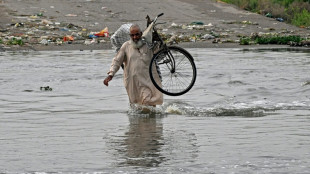 Torrential Pakistan monsoon rains kill more than 20
Torrential Pakistan monsoon rains kill more than 20
-
Record number of mosquito-borne disease outbreaks in Europe: health agency
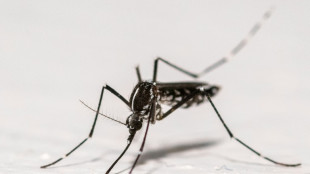
-
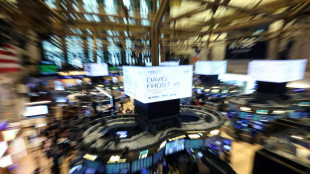 Stock markets diverge after Wall Street tech sell-off
Stock markets diverge after Wall Street tech sell-off
-
Chinese troops swelter through rehearsal for major military parade
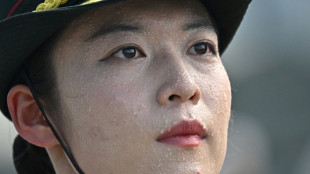
-
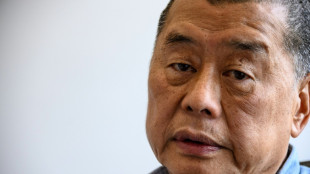 Defence begins closing arguments in Hong Kong trial of Jimmy Lai
Defence begins closing arguments in Hong Kong trial of Jimmy Lai
-
World champions Springboks to play Japan at Wembley
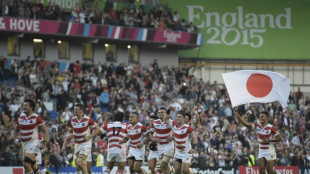
-
 Kneecap rapper in court on terrorism charge over Hezbollah flag
Kneecap rapper in court on terrorism charge over Hezbollah flag
-
Israel approves plan to conquer Gaza City, calls up reservists

-
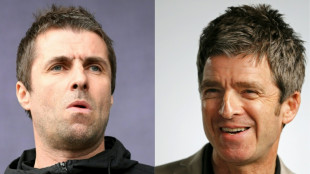 Oasis star Noel Gallagher piles praise on 'amazing' brother Liam
Oasis star Noel Gallagher piles praise on 'amazing' brother Liam
-
German minister says China's 'assertiveness' threatens European interests
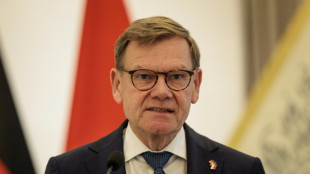
-
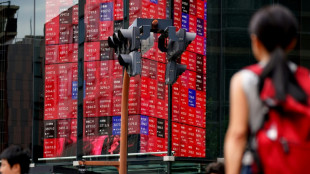 Markets waver as Japan exports show tariff strain
Markets waver as Japan exports show tariff strain
-
Afghanistan bus crash death toll rises to 78
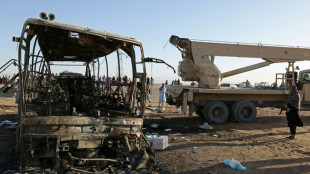
-
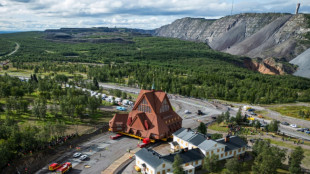 Historic Swedish church inches closer to new home
Historic Swedish church inches closer to new home
-
Asian markets waver as Japan exports show tariff strain
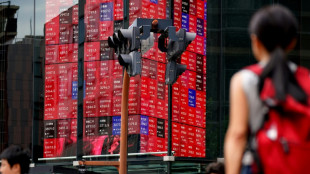
-
 Israel defence minister approves plan to conquer Gaza City
Israel defence minister approves plan to conquer Gaza City
-
More than 20 dead in fresh Pakistan monsoon rains
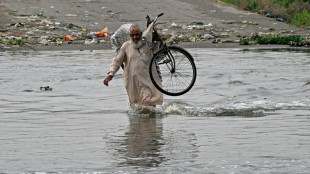

Shifting to Asia, Rubio meets Quad and talks minerals
US Secretary of State Marco Rubio met Tuesday with counterparts from Australia, India and Japan, shifting focus to Asia after a tenure so far marked by crises elsewhere and domestic priorities.
Rubio had welcomed the foreign ministers of the so-called Quad on January 21 in his first meeting after President Donald Trump's inauguration, seen as a sign that the new administration would prioritize engagement with like-minded countries to counter China.
Since then, much of Rubio's attention has been on the Middle East, with the United States bombing Iranian nuclear sites in support of Israel; on Ukraine, as Trump unsuccessfully seeks a ceasefire in Russia's invasion, and on boosting Trump's domestic priorities such as mass deportations of migrants.
Welcoming the three foreign ministers, Rubio did not directly mention military concerns over China but said he sought cooperation among business and on raw materials -- also key goals for the Trump administration.
Rubio told them he was focused on "diversifying the global supply chain of critical minerals -- not just access to the raw material, but also access to the ability to process and refine it to usable materials."
"It's critical for all technologies and for all industries across the board," Rubio said, voicing hope for "real progress" on the issue within the Quad.
China holds major reserves of several key minerals including the vast majority of the world's graphite, which is crucial for electric vehicles.
Beijing has sought to impose restrictions as leverage, as the United States in turn curbs its access to semiconductors and as Trump wields the threat of punishing tariffs on both friends and foes.
- 'Free and open' -
Trump is expected to travel to India later this year for a summit of the Quad.
The four-way partnership was first conceived by late Japanese prime minister Shinzo Abe, who saw an alliance of democracies around China -- which has repeatedly alleged that the Quad is a way to contain it.
Trump has long branded China as the top US adversary, but since returning to office has also saluted his relationship with Chinese President Xi Jinping.
Both the Indian and Japanese foreign ministers said that they wanted the Quad to focus on a "free and open Indo-Pacific" -- a phrasing that is a veiled allusion to opposing Chinese dominance in Asia.
"We're all committed to ensure a free and open Indo-Pacific," Indian Foreign Minister Subrahmanyam Jaishankar said.
"It is essential that nations of the Indo-Pacific have the freedom of choice, so essential to make right decisions on development and security," he said.
Jaishankar also made clear that India would raise its strikes last month against Pakistan in response to a major attack on mostly Hindu civilians in Indian-administered Kashmir.
"India has every right to defend its people against terrorism, and we will exercise that right. We expect our Quad partners to understand and appreciate that," he said.
Despite shared concerns on China, the Quad members have differed on other hotspots. India has maintained a historic relationship with Russia despite the invasion of Ukraine.
Both India and Japan also have historically warm relationships with Iran, whose nuclear sites the United States bombed in June in support of an Israeli campaign.
K.AbuTaha--SF-PST
